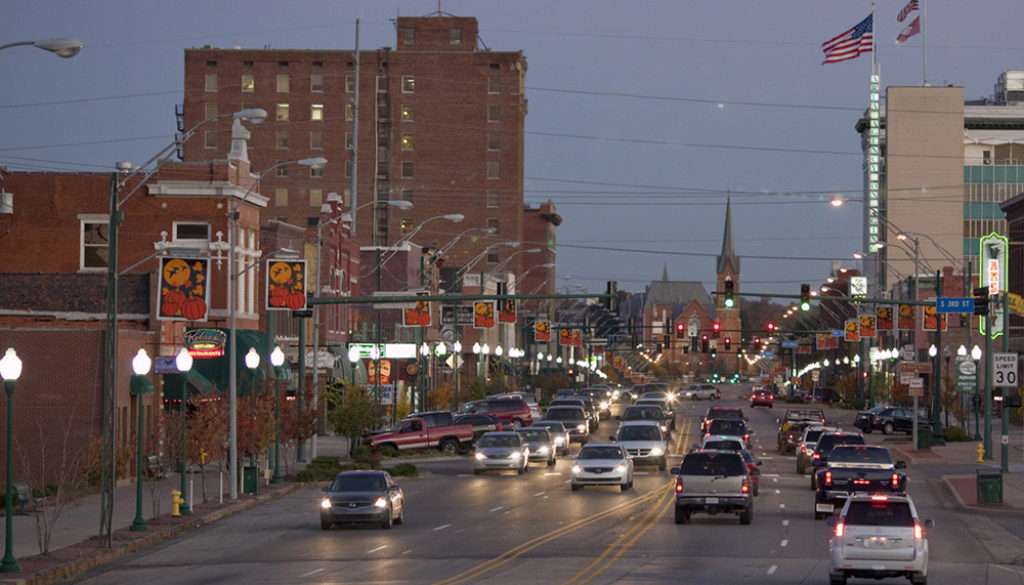GOOD ROADS DIRECTOR TOUTS BENEFIT OF ISSUE 1 FOR CRAWFORD AND SEBASTIAN COUNTIES

By Tina Alvey Dale
Talk Business & Politics
If Issue 1, which would make Arkansas’ half-cent sales tax for roads and highways permanent, does not win voter approval in November, Sebastian County and the cities in it could lose $3.45 million in funding annually.
That was the message from Joe Quinn, executive director of Arkansas Good Roads Foundation, to those attending the Fort Smith Regional Chamber of Commerce First Friday Breakfast (Jan. 3).
Arkansas voters approved the tax in 2012 for 10 years. It is set to expire in 2023. According to the Vote for Roads, Vote for Issue 1 website the half-cent tax addressed not only the Arkansas Department of Transportation’s biggest projects, but also road and street funding for cities and counties, which divide 30 percent of the tax revenue.
Under the proposal to continue that half-cent sales tax, the measure would provide more than $205 million a year in funding to maintain, improve, and construct nearly 7,000 miles of interstate and highway miles and repair and replace dangerous bridges throughout the state – all without raising taxes.
Cities and counties across the state would continue to receive $43 million annually. Breaking that down locally, Sebastian County receives $991,836 annually; Fort Smith receives $2.009 million; and Greenwood receives $208,638. Crawford County receives $744,774 annually, while Van Buren receives $531,175 and Alma receives $126,297. The total annual funding, which would be loss if the issue does not pass, for Crawford County and the cities and towns with in it is $1.54 million, Quinn said.
Gov. Asa Hutchinson said in November that Issue 1 will be his highest political priority in 2020. He also said the Highway Commission and Arkansas Department of Transportation are developing a map on how to spend the $205 million the tax would bring in annually. Highway commissioners and ARDoT will host 12 public hearings across the state concerning the tax and how funds will be spent, beginning Jan. 21 in Monticello and ending April 2 in El Dorado. At a meeting of the Arkansas Good Roads Foundation in November, Hutchinson said the proposal is vital to the state’s future.
A Gilmore Strategy Group poll in October found 62% of 800 likely voters said they’re going to vote for Issue 1 or are likely to vote in favor of it, according to Hutchinson. The poll also showed 68.6% of people are more likely to vote for the amendment “if they are assured that it was going to be spent and invested in all four corners of the state.”
Quinn said Friday that 90% of state funding is used on the 50% of the roads in the state that carry 90% of the state’s traffic. Quinn added that the funds would allow for safer roads throughout the state and funds generated from road maintenance and construction generally cycle three to four times as they goes through a community.
“This tax will support around 3,600 jobs each year and provide $8.2 billion of economic activity over 10 years,” Quinn said. “And it’s not a new tax. It’s a continuation of an existing tax. It is not new.”
Tim Allen, president and CEO of the Fort Smith Regional Chamber of Commerce, said passage of the road tax is vital to Fort Smith as a manufacturing community because of the infrastructure it will support.
“It is because of the infrastructure that Fort Smith became a leading manufacturing community. It is what gives me and the chamber an up on the competition when it comes to attracting more industry. Infrastructure is key to economic development,” Allen said.
